Mobilizing excellence: Tapping into Canadian expertise to respond to needs for technical assistance

Canada supports development programming around the world, financing projects intended to improve lives and livelihoods in developing countries.
For some Canadians, it’s much more of a hands-on effort. Through ������Ƶ’s Technical Assistance Partnership program, or TAP, experts from across the country are deployed to support developing countries in tackling priorities and challenges. Aligned with Canada’s Feminist International Assistance Policy (FIAP) and with a view to strengthening bilateral relationships, as well as engaging Canadians, the program promotes Canada’s leadership around the world through the sharing of our expertise and experience.
“We are mobilizing the excellence in Canada’s public service and society,” says Susan Pereverzoff, director of the Global Citizens and Engagement Division at ������Ƶ. Its initiatives are designed to inform and inspire Canadians and involve them in international assistance, including through volunteer and youth internship programs, in addition to TAP.
Short-term initiatives tailored to local needs
TAP became operational just over 2 years ago, and it’s currently operating in 39 countries and growing, Pereverzoff says. The flagship initiative supports poverty reduction in line with the Sustainable Development Goals and is designed as a locally driven mechanism. It responds to requests for technical assistance made through Canadian embassies and high commissions abroad from national-level government entities of countries that are eligible for official development assistance.
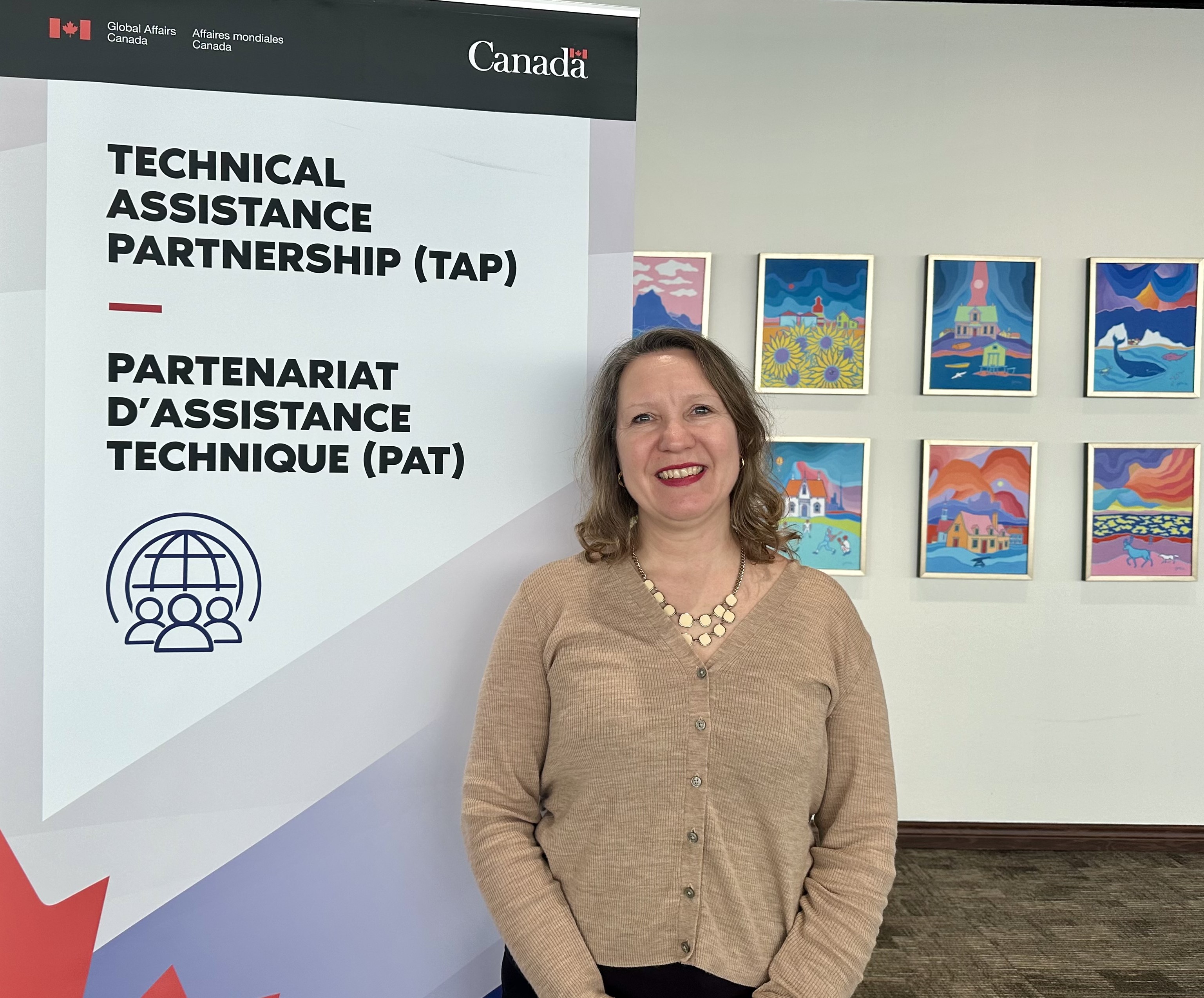
Photo Credit: Marta Gomes Machado
The resulting expert deployments are short term, from 3 weeks up to a year, and tailored to the needs of national governments. The range of projects has included vocational training, sustainable practices in the extractive sector, impact investing, anti-human-trafficking measures and forest fire management.
Pereverzoff says that TAP is part of an investment by the Government of Canada in the FIAP, which supports efforts to eradicate poverty around the world by addressing inequality. TAP aligns with the 6 FIAP action areas: gender equality, human dignity, growth that works for everyone, environment and climate action, inclusive governance and peace and security.
Canada’s expertise in these fields is recognized, Pereverzoff says, and addressing challenges “requires collaboration, a shared vision and the sharing of approaches.” This brings a “local-global link” that can benefit Canada as well as the targeted countries.
“There’s a richness in sharing experiences, in learning from what others are doing, what’s working, what’s not working,” she explains. “The creativity and the innovation that comes from people putting their heads together to solve a problem can have benefits for all.”
Private sector and public sector deployments
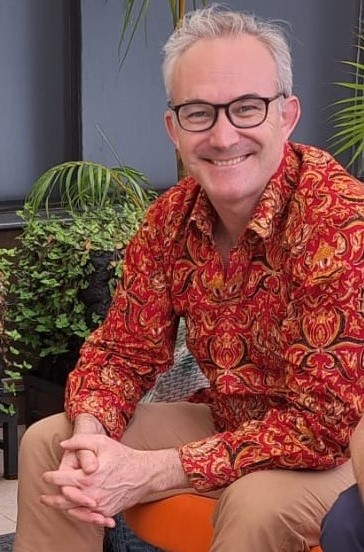
Photo Credit: Alinea International
TAP has 2 components. The Expert Deployment Mechanism (TAP-EDM), implemented by Alinea International, recruits Canadian experts from the private and public (provincial) sectors, academia and civil society, across all sectors. The Government of Canada (TAP-GoC) mechanism responds to requests in areas where the federal government is active, helping build institutional relationships and linkages. These so far have involved the Office of the Commissioner for Federal Judicial Affairs Canada, the Department of Justice and Natural Resources Canada.
Christopher Yeomans, project director of TAP-EDM for Alinea International—a specialized consultancy firm that delivers development programming around the world—says there have so far been 57 TAP-EDM initiatives involving 103 Canadian experts.
Yeomans, who is also an adviser on governance and human rights for TAP-EDM, says the program “works like a living library of technical advisers.” It lends Canadian leaders from a diversity of sectors, professions, backgrounds, genders, cultural identities and regions across Canada to share their expertise with partner countries.
He says there is “a level of respect and esteem for Canada and Canadians, for the type of society that we have created and we project around the world” in areas such as integrating gender-equality issues and social inclusion in public policy. “There’s people wanting to learn more about how we’re implementing that.”
“A responsibility as global citizens”
Alinea hires top talent for the technical assistance initiatives, Yeomans says, noting that many have never been involved in international development before. Canadians are motivated to take on these assignments because “we have a profound sense of social justice in this country and a responsibility as global citizens to contribute to better living conditions for people around the world,” he comments.
Participants “get a new experience, and they’re engaged and excited about the work,” Yeomans says. “We learn more when we’re thrown into a situation and into a context that we’re unfamiliar with. And that gives us a certain perspective on our place in the world.”
He says that providing technical assistance to countries helps improve Canada’s credibility and relationships with other national governments. Canadian values come through, but he cautions that it’s important for experts to avoid a “colonial prism that we’re from the North, we’re rich, we know how to do things better.” TAP participants “certainly come back changed,” and there is follow up to assess the long-term impact of the initiative. “This is just not throwing money down a hole, this is really contributing to sincere development results.”
Developing local capacity
The goal is to develop local capacity in target countries, Yeomans explains, “empowering them to make decisions that take into consideration gender equality or their impact on the environment or how to be more accountable.”
For TAP-EDM participant Anju Fujioka, a lawyer and advocate for victims of sexual and gender-based violence in London, Ontario, the request for technical assistance came from The Gambia. That West African country’s Ministry of Justice was looking for training for investigators and prosecutors so they can better respond to the special challenges posed by crimes of sexual and gender-based violence.
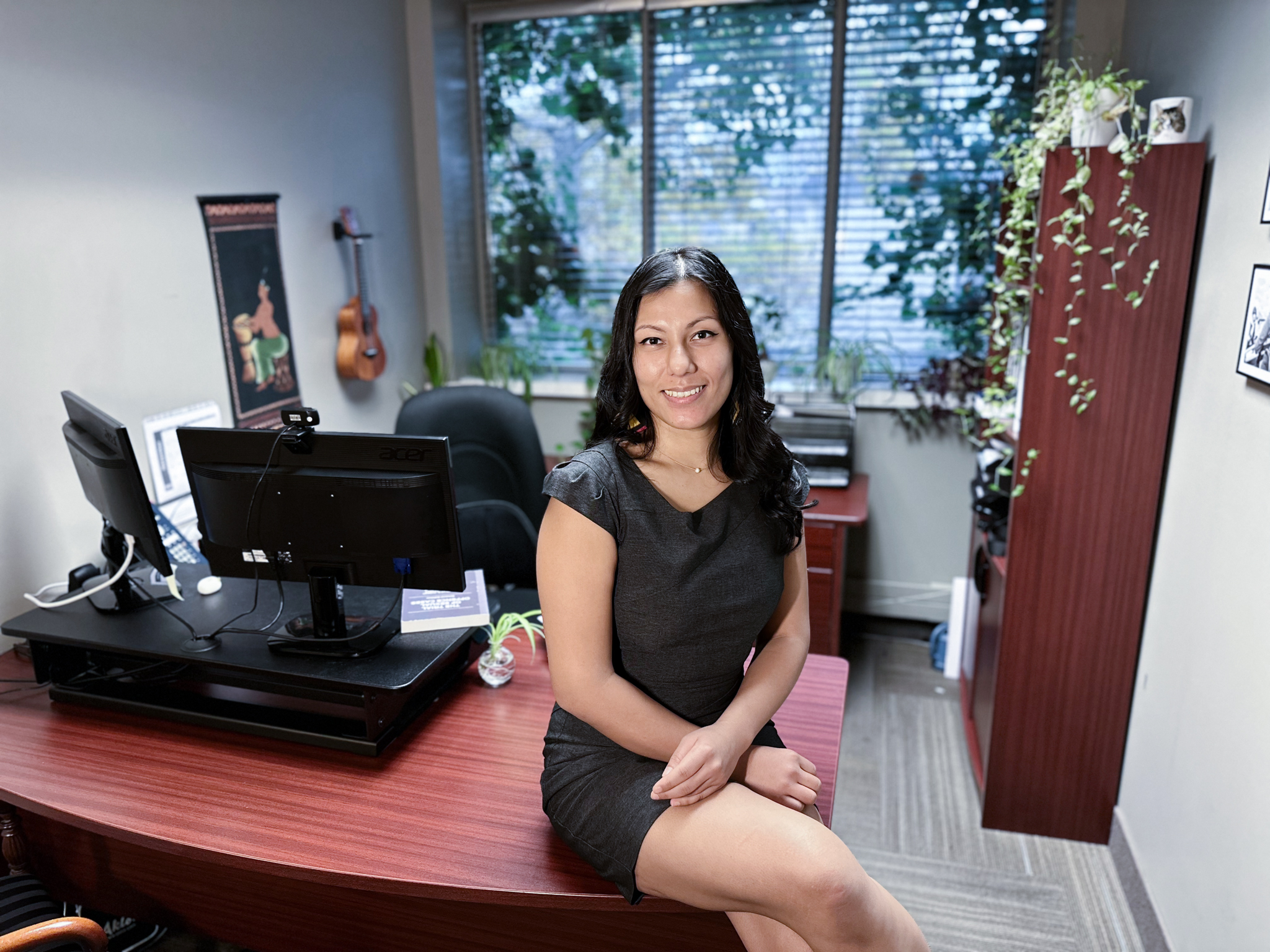
Photo Credit: Michael Hughes
The core issue is developing the country’s capacity to investigate and prosecute sexual and gender-based offenses, Fujioka says. She’s on a team that’s working to “make the system more victim-centric and trauma-informed,” which, she points out, “actually aligns with a lot of what Canada is trying to do.”
Fujioka says a major focus of her efforts has been helping investigators and lawyers in The Gambia interview complainants and witnesses in a way that is more sensitive to their needs. She began to feel that she was having an impact when people participating in her training sessions started sharing their own experiences of sexual and gender-based violence, a typically taboo subject in the country.
“The fact that we were even opening these conversations, maybe there is a slight attitude shift,” she says. “Even if that attitude shift happens with 1 investigating officer, 1 prosecutor, you don’t know what can happen from that.”
Expanding government deployments
Oleg Shakov, director of international programs for the Office of the Commissioner for Federal Judicial Affairs (FJA) explains that the TAP-GoC mechanism includes deployments of federal judges from Canada to support countries facing judicial challenges. FJA is a government department that safeguards judicial independence and provides services to federally appointed judges in Canada.
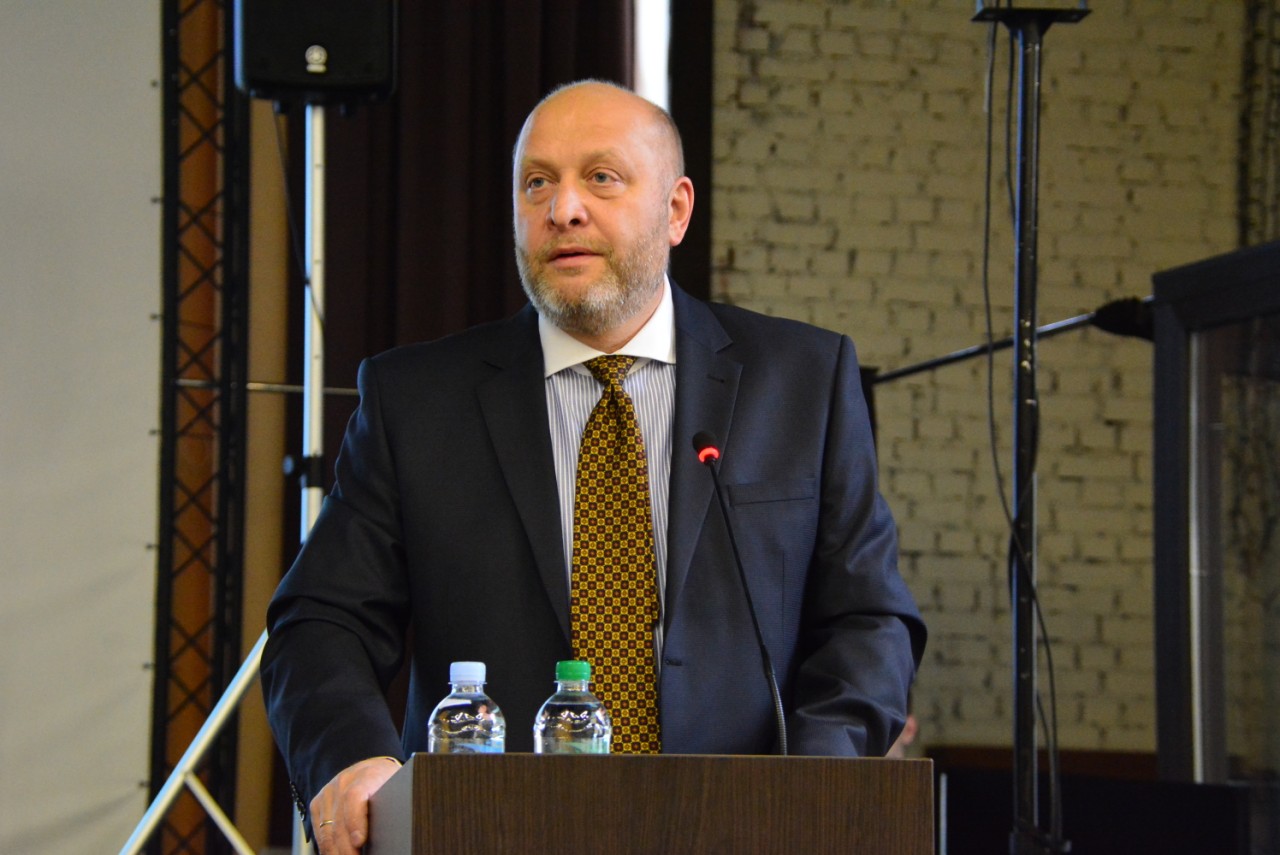
Photo Credit: Courtesy of Oleg Shakov
Shakov says that FJA’s work under TAP started with pilot projects in Mongolia and Colombia. The focus in Mongolia was on enhancing judicial independence and ethical conduct, while increasing public confidence in the judiciary. The goal in Colombia was to assist the country’s Judicial Gender Commission to operationalize its gender policies, laws and practices. This was streamlined into a comprehensive strategic plan that resulted in the country introducing elements of an integrated domestic violence court, which would allow Colombia’s criminal and family divisions to work together.
FJA has now committed to undertaking 3 TAP projects per year for 5 years. The first year involves a continuation of the work in Mongolia, as well as new initiatives in South Africa and Moldova. Shakov says there are many requests for assistance ahead.
“Canada’s judicial system is often viewed by many countries around the world as a gold standard,” he remarks. Canada’s commitment to judicial independence, transparency and governance “make us a very attractive partner for countries that are looking to reform their judicial systems. They see it as a benchmark.”
Many judges in Canada “view this kind of assistance almost as a moral obligation, to support emerging democracies in laying down a strong foundation for the rule of law,” Shakov comments. “We’re not just sharing best practices in judicial independence or digitalization, for example. We’re sharing our commitment to justice as global citizens.”
“Outside-the-box thinking”
FJA has a history of taking on multiple-year projects abroad, Shakov says, while the TAP initiatives are approved for a maximum of 1 year. This allows FJA to respond “almost instantly” to requests for access to Canada’s judicial expertise. “It’s a way for our diplomatic missions to act swiftly and make real impact in the country where they’re based.”
It can also be challenging to complete tasks in far-off places in that time. “You hear this clock ticking—tick, tick, tick—12 months and it’s all done. So, it’s very different, but it’s extremely exciting and invigorating,” Shakov says. “For the government, it’s a lot of outside-the-box thinking.”
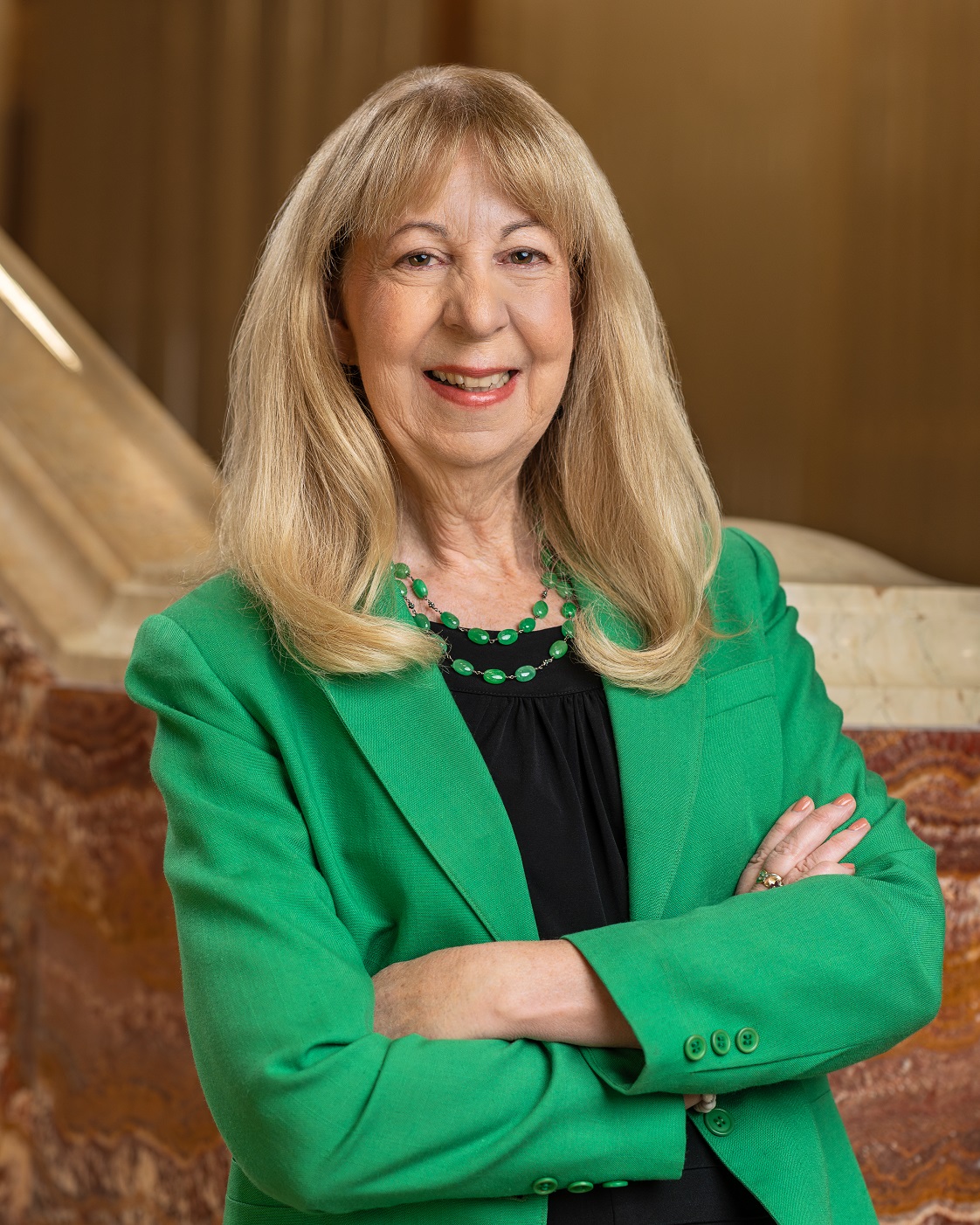
Photo Credit: Courtesy of Supreme Court of Canada
The judges participating in TAP-GoC find it inspiring “when you look at what you succeed in accomplishing as a team of Canadians,” he adds. For instance, those working in Mongolia attended a biennial all-judges congress there in the autumn of 2023, during which the first version of an ethical guide they had collaboratively helped to establish was adopted. The congress members also voted to create a judicial ethical advisory council.
Justice Mary Moreau, who was appointed to the Supreme Court of Canada in November 2023, and took part in the Mongolia TAP initiative when she was previously Chief Justice of the Court of King’s Bench of Alberta, notes that there were also “lines of communication established with the media” in the country.
Media representatives in Mongolia have reported that an open-court principle is now being adhered to more closely than it had been in the past, she says. “The media are the eyes and ears of the public and are important stakeholders in an open court system.”
It’s important for TAP participants to adapt their efforts to the context in a country such as Mongolia and “give voice to those who are experiencing challenges locally, whether that be judges, court administrators, members of the bar, NGOs, the media,” Moreau says. “Avoid cookie-cutter, made-in-Canada solutions that may overlook local issues.”
Qualities needed to do such work and build strong relations with partner countries include patience and openness, she says. This means “continually emphasizing the idea that judges internationally are not immune from the reality that the rule of law needs constant protection,” Moreau adds. “No judicial system is perfect—we are all evolving, and we learn much from the systems we study. We are there to support but also to learn.”
“We are all connected”
Programs like TAP help Canadians see that “we are all connected, we all live on this 1 planet,” Yeomans says. “Generating greater global awareness among Canadians is more than the right thing to do. It’s our responsibility to those who will come and inhabit this earth 7 generations from now.”
TAP shows Canadians “that they can really make a difference,” Yeomans explains. “When they’re convinced that they can actually move the needle on something, they get engaged and they follow through—and sometimes they even give more than what they’re asked for.” Indeed, some TAP participants have continued to work with partner countries beyond their assignments, even on a pro-bono basis.
Pereverzoff says that a key part of TAP is increasing awareness of Canadians as global citizens, while at the same time supporting Canada’s international assistance investments through public engagement and outreach. Participants are encouraged to share their TAP involvement with their communities, professional networks and families.
“While they’re on a mandate, they might be journaling or chronicling what they’re doing, they might be engaging on social media to share their experience,” she explains. “When they come back, they have a powerful story to tell about collaboration, about the demand for Canadian expertise and Canadian experience and knowledge, and how Canada is projecting its leadership around the world.”
Pereverzoff says that TAP brings “life-changing experiences for some of the experts. They take away a personal relationship and interaction, a real lived experience, a deeper understanding of global issues and international development and the role that Canada has in contributing to leaving no one behind.”
The experts say the missions give them an appreciation of the strengths of partner countries, the potential for progress and the need for further collaboration.
“We are not saying that Canada and Canadians have all the answers, or that we do things the best way, but that we have something to share and something to learn,” Pereverzoff adds. “When we bring that sharing and that spirit of learning together, we can achieve really impressive things around the world.”
- Date modified: